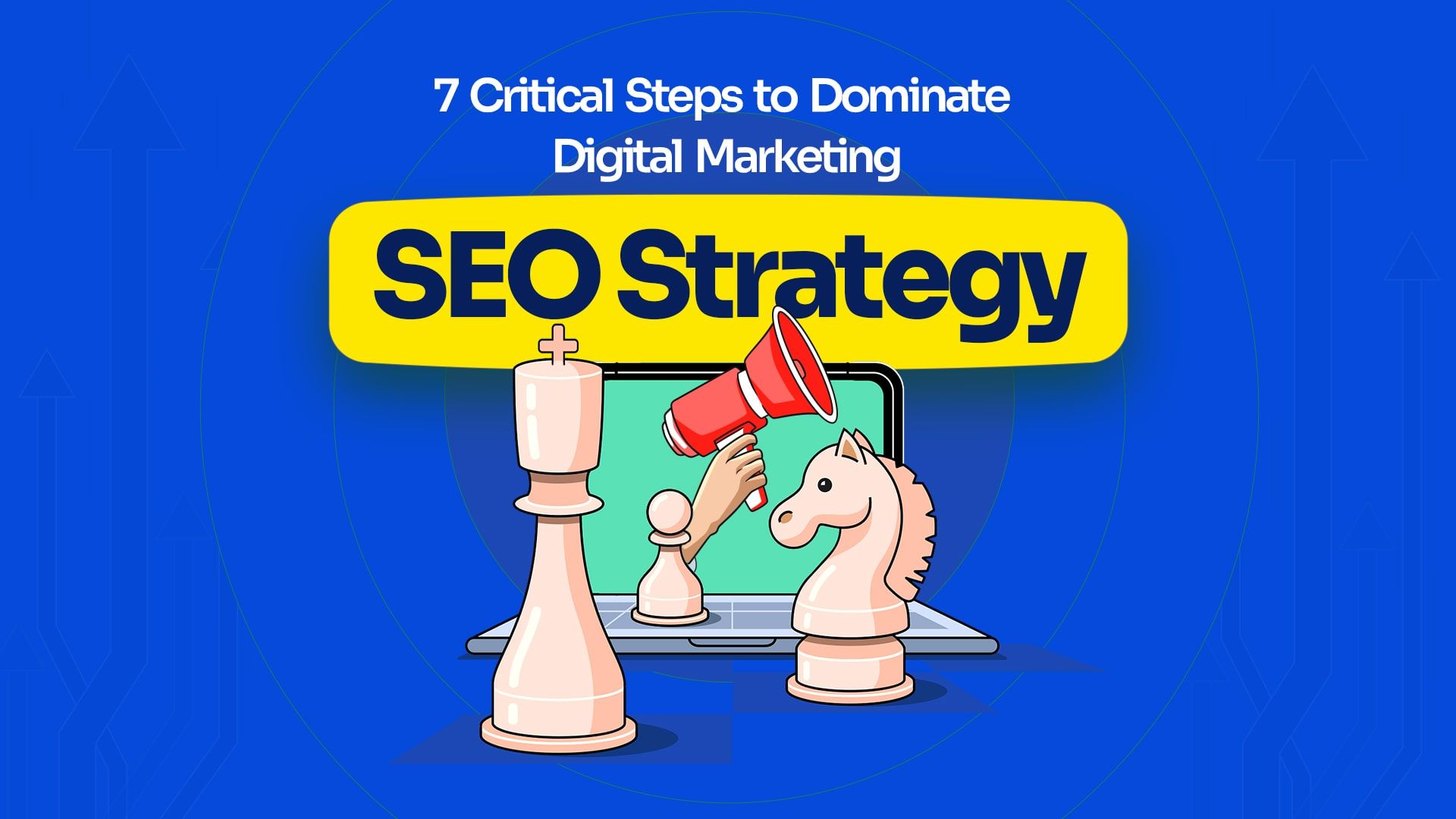
As a business owner, you’ve probably realized that SEO is essential to online success. Mastering SEO strategies in today’s digital world is vital for maintaining a competitive edge. SEO still plays a significant role in achieving online success. If you want to improve your digital marketing game and dominate the online world, then adopting these seven critical steps can help. These steps are commonly used by SEO agencies to provide effective results with their SEO packages. So, remember these steps to enhance your website’s search engine rankings and take your business to new heights.
Comprehensive Keyword Research: The Bedrock of SEO
The meticulous process of comprehensive keyword research is at the heart of any successful SEO strategy. This foundational step is paramount in ensuring that your digital content aligns seamlessly with the language and queries of your target audience. Let’s explore why understanding your audience’s language is essential and how tools like Google Keyword Planner, SEMrush, and Ahrefs become invaluable assets in this journey.
The language your audience uses provides a direct pathway into their needs, preferences, and online behavior. By comprehending and mirroring this language, you create a connection beyond mere visibility—it resonates with users more profoundly. Knowing the specific terms, phrases, and questions your audience employs allows you to tailor your content to address their concerns directly, making your website a go-to resource in your industry.
Content is King, Context is Queen:
RankBrain, a machine learning component of Google’s search algorithm, has ushered in a new era of search capabilities. Unlike traditional algorithms that relied on predefined rules, RankBrain employs artificial intelligence to understand and interpret user queries. This shift places a premium on content that goes beyond keyword matching; it demands a nuanced understanding of user intent and an ability to provide valuable solutions.
In the age of RankBrain, creating high-quality, relevant content is no longer a recommendation but a non-negotiable requirement. Google’s algorithms are increasingly discerning in assessing content quality. The focus has shifted from mere keyword density to the overall value a piece of content brings to users. This necessitates a strategic approach to content creation, wherein every piece is crafted not just to incorporate keywords but to genuinely serve the audience’s informational needs.
Catering to the On-the-Go User
The statement emphasizes the increasing importance of mobile optimization for websites in the current digital landscape. Central to mobile optimization is the adoption of responsive design. This design methodology guarantees that a website’s layout and content adapt seamlessly to diverse screen sizes, delivering an optimal viewing and interaction experience across a spectrum of devices, encompassing smartphones and tablets. Responsive design is essential for accommodating the ever-expanding variety of devices prevalent today and anticipated in the future.
Technical SEO
Technical SEO refers to optimizing the website’s technical elements rather than its content. It involves changing the backend structure and settings to enhance the website’s overall health and compatibility with search engine algorithms.
Key Aspects of Technical SEO:
Website Speed: One crucial aspect of technical SEO is optimizing the speed at which a website loads. Faster loading times not only contribute to a better user experience but are also favored by search engines. Google, in particular, considers page speed as a ranking factor.
Crawlability: Search engines always use bots to crawl and index web pages. Ensuring these bots can easily navigate and crawl through your website is vital for effective SEO. This involves creating a clear and organized site structure, using sitemaps, and having a logical URL structure.
Indexation: Indexation pertains to the procedure through which search engines incorporate web pages into their database. In technical SEO, the focus is on guaranteeing that all pertinent pages on your website undergo proper indexing, ensuring their inclusion in search engine databases. This includes addressing issues that may prevent certain pages from being indexed or dealing with duplicate content problems.
Build High-Quality Backlinks
Backlinks are the external links that point to your website from other websites. They play a crucial role in SEO as search engines consider them signals of a website’s authority and credibility. Essentially, backlinks are seen as a vote of confidence from other online entities.
Variability in Backlink Quality:
The content suggests that not all backlinks carry the same weight. Some may be more valuable than others, depending on the source. Search engines assess the quality of backlinks based on the linking website’s authority, relevance, and credibility.
Focus on High-Quality, Relevant Backlinks:
The recommendation is to concentrate on building high-quality and relevant backlinks. This means seeking links from reputable sources within your industry or niche. Such links are likely to positively impact your website’s SEO because they reflect a genuine interest or endorsement from authoritative entities.
Keep Visitors Coming Back
User experience is a critical factor influencing SEO rankings and user retention. A seamless and enjoyable browsing experience encourages users to stay longer on your site, reducing bounce rates and signaling to search engines that your content is valuable. Optimize your website’s navigation, use clear calls to action, and ensure the overall design is user-friendly. Google rewards websites that only prioritize user satisfaction.
The Continuous Improvement Cycle
Regularly monitor your SEO performance using tools like Google Analytics and Search Console. Analyze user behavior, track conversions, and identify areas for improvement. Leverage A/B testing to explore and refine diverse strategies based on the outcomes. Adopting a data-driven approach guarantees that your SEO endeavors remain pertinent and efficient amidst evolving algorithms and shifting user behavior.
As a digital marketer, I agree that mastering SEO strategy is crucial for success in today’s competitive landscape. Conducting comprehensive keyword research, analyzing data, and iterating regularly is essential to improving online visibility. Adopting these seven critical steps can enhance your website’s search engine rankings and establish a solid foundation for long-term digital marketing success. Remember to stay agile, stay informed, and let SEO be the driving force behind your online achievements.

